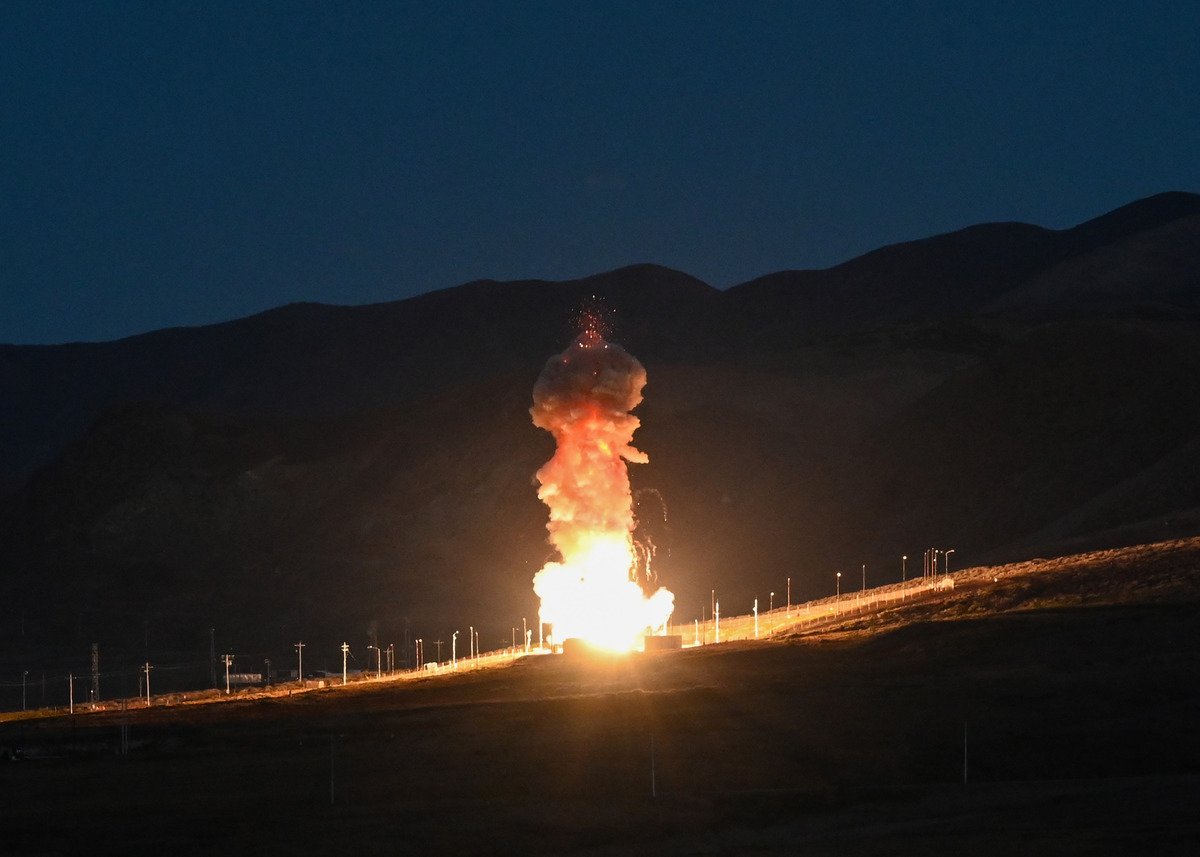The U.S. has successfully tested an upgrade to the country's air defenses against long-range ballistic missiles, but questions remain over just how effective the enhancement would be in a real-life intercontinental missile attack.
On Monday, the U.S. Missile Defense Agency (MDA) said the U.S. military and space-based forces' Ground-Based Interceptor (GBI) had successfully taken out an intermediate-range ballistic missile in a new test, referred to as FTG-12.
The improved interceptor was launched from the Vandenberg Space Force Base in California just after 6:30 a.m. PT (9:30 a.m. ET) on Monday.
"The test demonstrated the ability of the Ground-Based Midcourse Defense (GMD) capability to engage threats faster," the Missile Defense Agency said in a statement.

This was the program's 13th intercept, and the system protects the U.S. by destroying ballistic missiles while they are still outside the Earth's atmosphere, defense giant Raytheon, which was involved in developing part of the interceptor missile, said in a press release.
The GMD is the U.S.' main shield against long-range ballistic missile attacks, and is designed to shoot down incoming missiles while they are still in the mid-course flight phase. The interceptors are based in Vandenberg and Fort Greely, Alaska, with the GMD spread across 15 time zones, according to the Center for Strategic and International Studies think tank.
The U.S. has 44 GMD interceptors — if it designated up to four interceptors for an incoming warhead, the U.S. could destroy up to 14 warheads, Fabian Hoffmann, a doctoral research fellow at the University of Oslo, Norway, told Newsweek.
"That might be enough to deny a small-scale attack or prevent against an accidental launch, but would not be enough to defend against Russia or China in an all-out nuclear war," he added.
The GMD is designed to protect the U.S. from ballistic missiles from "rogue nations" like North Korea and Iran, the Missile Defense Agency said on Monday. But it's not intended to shield the nation from Russian or Chinese large or advanced intercontinental ballistic missiles (ICBMs).
"The United States relies on strategic deterrence to address those threats," the MDA said.
The test's success will likely have been "a huge relief" for the U.S. military, weapons expert David Hambling told Newsweek.
"This test provides one more piece of evidence that the system will function as intended," he added.
"The test demonstrates a baseline capability of the United States to intercept incoming ICBM warheads," Hoffmann said. But taking out ICBMs is "a whole different ball-game" compared with shooting down cruise missiles or short-range ballistic missiles, he added.
However, it is not clear how well the system would function in real-life environments, nor what the possible capacity would be, experts suggest. It is best to be conservative in estimating the importance of such a test, Hoffmann said.
An MDA spokesperson told Newsweek on Monday that the agency planned to "conduct rigorous ground testing in 2024 to support fielding to the fielded fleet in 2025."
But there is still value in developing this type of air defense system. Without it, countries hostile to the U.S. that have ballistic missiles would pose a much more serious threat, Hambling argued.
"This is why the system might be seen as extremely good value, even if it is not 100 percent effective," he said.
To really deepen the U.S.' defenses against ICBMs, the U.S. military "would have to deploy substantially more GMD interceptors and build up the enabling infrastructure further," Hoffmann added. "This would incentivize its adversaries, however, to build up their nuclear arsenals."
Uncommon Knowledge
Newsweek is committed to challenging conventional wisdom and finding connections in the search for common ground.
Newsweek is committed to challenging conventional wisdom and finding connections in the search for common ground.
About the writer
Ellie Cook is a Newsweek security and defense reporter based in London, U.K. Her work focuses largely on the Russia-Ukraine ... Read more
To read how Newsweek uses AI as a newsroom tool, Click here.








